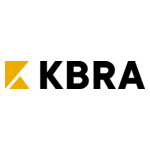
KBRA Releases Research – CRE Secular Trends: How Long Will Tailwinds Benefit Industrial?
NEW YORK--(BUSINESS WIRE)--#KBRA--KBRA releases research on the industrial sector, which is benefiting from positive demand factors but has headwinds on the horizon.

The growth in e-commerce is a key driver of demand for industrial warehouse space, which was amplified by the COVID-19 pandemic. In addition to e-commerce demand, lessons learned from pandemic-related supply disruptions have incentivized some retailers and wholesalers to hold additional inventory as safety stock and have also contributed to reshoring—the practice of bringing manufacturing and services back to the U.S. from overseas—by some manufacturers. These factors, combined with an already tight market with record low vacancies, have led to a record high construction pipeline. The top five markets with the largest construction pipelines are in Sun Belt cities. Growth in this region is a result of low availability and high rents on the West Coast in conjunction with population shifts. In addition, some U.S. companies plan to reorganize supply chains by manufacturing goods in Mexico and using facilities north of the border for distribution.
Much of the space coming to market incorporates features that increase the usability of industrial properties. It will also be designed to support robotics to enhance warehouse automation, which will have an ongoing importance in the face of labor shortages and wage inflation. The new construction will also support cold storage uses, which allows food and pharmaceutical products to last significantly longer and protect against disruptions due to supply chain issues as well as climate change. Further, the new supply will include sustainable as well as environmental, social, and governance features like the option to reduce electricity and the use of environmentally friendly building materials.
Although demand for this new supply remains strong, construction may start to cool in some parts of the U.S. as economic uncertainty grows and construction costs remain high. This will likely contribute to slowing rent growth and absorption as well as construction trends. Further, older properties may be impacted regardless of whether there is an economic contraction, as more recently built space with attractive features becomes available in the market.
This report is part of KBRA’s ongoing series on the secular trends that are transforming the “new normal” landscape in commercial real estate (CRE) across property types.
Click here to view the report.
Related Publications
- CRE Secular Trends: A Long-Term Transformation for Office
- CRE Secular Trends: Self-Storage Continues to Lock It Up
- CRE Secular Trends: The Multifamily Affordability Squeeze
- CRE Secular Trends: Shoppers Return to Stores as E-Commerce Growth Slows
- CMBS Trend Watch: February 2023
- CMBS Loan Performance Trends: February 2023
- KBRA Loss Compendium Update: December 2022
- CMBS ARAs: Nearing an Inflection Point
- Nearly 75% of SASB Rate Caps Below Prevailing Index Margin
About KBRA
KBRA is a full-service credit rating agency registered in the U.S., the EU, and the UK, and is designated to provide structured finance ratings in Canada. KBRA’s ratings can be used by investors for regulatory capital purposes in multiple jurisdictions.
Contacts
Margit Grejdus, Senior Director, CMBS Ratings Surveillance
+1 (215) 882-5850
margit.grejdus@kbra.com
Gretel Braverman, Senior Director, CMBS Ratings Surveillance
+1 (215) 882-5843
gretel.braverman@kbra.com
Larry Kay, Senior Director, CMBS Ratings Surveillance
+1 (646) 731-2452
larry.kay@kbra.com
Business Development
Daniel Stallone, Senior Director
+1 (646) 731-1308
daniel.stallone@kbra.com
Editor Details
-
Company:
- Businesswire
